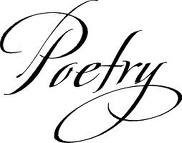Poetry is distilled, inspired language. It is the expression or delicate suggestion of a person's creative intuition, perception, vision, or emotion in specially crafted language. Poetry lends itself more easily than prose to a certain fineness and refinement of feeling and to the communication of beauty and universal truth in abbreviated imaginative form.
A poem has certain elements - though content, emotional content, imaginative content, and form. Every poem has crystallized ideas or concepts waiting to be reflected upon, mulled over, analyzed, interpreted, and evaluated. it contains inbuilt ideas, and these ideas can beget other ideas, for a poem is organic. The poet's ideas usually converge around one main message - the theme of the poem.
Besides the intellectual element, there is the dimension of feelings and emotions evoked by the poet, feelings of love, awe, anger, melancholy, joy, wonder, despair, anguish, hope, or gratitude. The emotional content exists because a poem is a revelation of human life experiences. It can sometimes mean the baring of a soul.
Since a poem is specially crafted language, the poet deliberately and consciously projects concrete images to bring out his controlling purpose. One can easily visualize, for example, Wordsworth's " Splendor in the grass and clouds of trailing glory." The poet's craftsmanship in projecting the world images embedded in his poem; his skill in the art of word painting; his artistic mastery of figures of speech of onomatopoeia, simile, metaphor, personification, alliteration, assonance, consonance, apostrophe, synecdohe, metonymy, kenning, allusion, hyperbole, and analogy; his appeal to the reader's senses of sight, hearing, touch, and smell; his use of symbolism can be appreciated.
Lastly, a poem has technical form. It has rhythm, and it can also have rhyme. It can have the lilting jingle of a nursery rhyme; the singsong quality of a ballad; the formal cadence of epic; he brevity of a couplet; the compression of a haiku; the lingering music of a lyric; the rustic note to a pastoral poem; the exalted tone of an ode; the somber mood of an elegy; the haunting refrain of a ballade; the measured lines of a quatrain, a terza rima, or a sonnet; the rhymelessness of blank verse, and the relative freedom of free verse. A poem can manifest iambic, anapestic, dactylic, trochaic, and spondaic feet, and its lines may range from monometers to heptameters. The craftsmanship of the poet makes use of form ( of meter, line, foot, stanza, rhyme, punctuation, pauses, poem type, and format) to enhance the other elements of his poem for a total effect.
A poem is though out, felt, visualized, and crafted. It is a truly work of art.

No comments:
Post a Comment